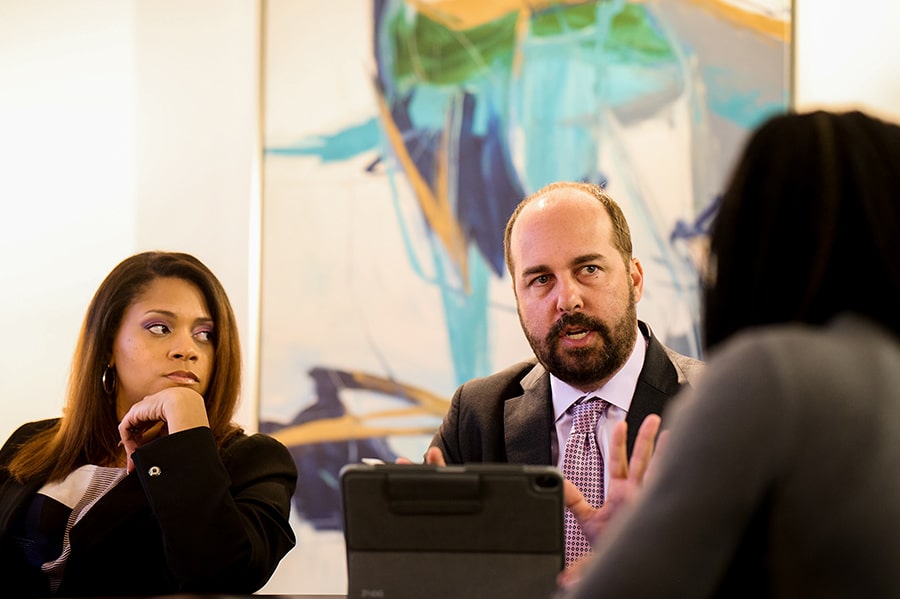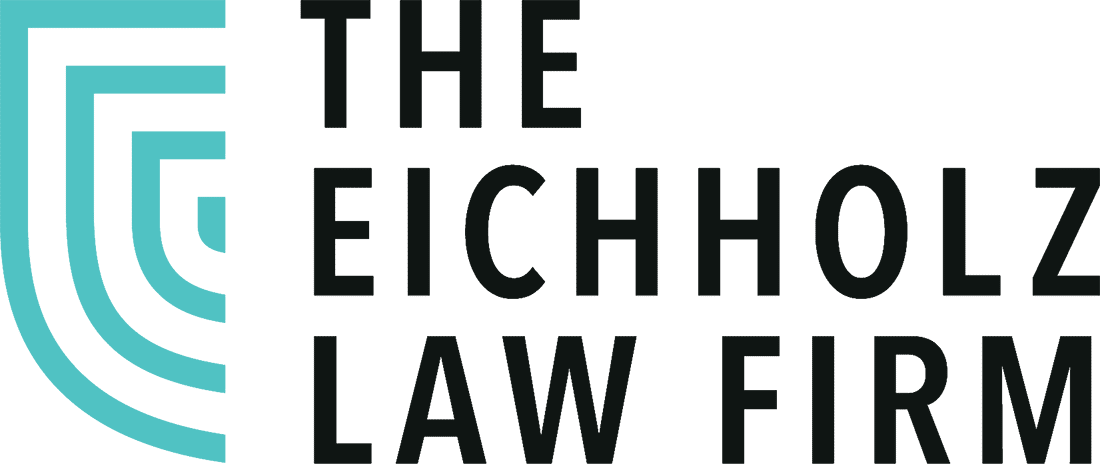Nursing Home Abuse Attorneys
Nursing Home Abuse Attorneys
Elder abuse can happen anytime and anywhere. Whether it’s a worker at a nursing facility calling a resident names or a relative taking financial advantage of an older family member, elder abuse is a widespread issue that affects millions of Americans.
The rise of elder abuse can be partially attributed to the yearly increase in life expectancy thanks to improvements in late-life care and modern medicine. However, growing populations of older adults also mean more opportunities for elder abuse.
Although the reporting of elder abuse is not where it should be, those who have experienced abuse in nursing homes or by family members have recourse. Learn more about how a lawsuit can help an older adult get the justice they deserve.
Speak with The Eichholz Law Firm at (912) 600-1203 or fill out an online contact form.
Get Your Case Evaluation:
Different Types of Nursing Home Abuse
Elder abuse does not appear in just one form, and often it is cloaked in such a way that many people fail to notice it. Some people mistakenly believe that all elder abuse is physical, but nothing could be further from the truth. Family members and friends of elderly nursing home residents should familiarize themselves with the various forms of abuse that occur, and learn the symptoms that indicate abuse is happening.
Make it a point to become a shield and help stop elderly victims from experiencing detrimental results like mental health problems, physical issues, or even death caused by abusers. Here are the main types of nursing home abuse:
Physical Abuse
Caregivers, service providers and relatives fall into the category of those most likely to perpetrate abuse upon an elderly person. The very people an older adult should be able to trust often become the ones inflicting harm and pain. When an individual uses physical force that causes distress, impairment, harm or death to another, this constitutes physical abuse. Such things as shoving, pinching, choking or hitting someone with an object all qualify as abuse.
In nursing home settings, there are three main types of physical abuse:
- Misuse of Restraints – Restraints may only be legally used for medical purposes. Unfortunately, it is not uncommon for restraints to be used in nursing homes to punish residents, or because staff members want a reprieve from watching over residents. As a result of attempting to get free from the restraints, nursing home victims frequently suffer cuts and burns to the skin. Residents trying to break free from restraints may also become entangled and suffer broken bones or strangulation. Additionally, if residents are restrained for long periods, they can develop bedsores.
- Active Abuse – Active abuse is committed intentionally by a perpetrator bent on hurting the resident. Examples of methods used include slapping, punching, shoving, biting, pinching, shaking and burning.
- Physical Negligence – This form of abuse involves withholding or failing to provide water, food, clothes and a clean living area.
Sexual Abuse
Sadly, senior adults are not exempt from being subjected to sexual abuse. In addition to the physical abuses mentioned above, family members or caretakers can prey upon the elderly through sexual abuse. Older adults with a disorder like Alzheimer’s are not capable of giving approval for sexual activity, but that doesn’t stop predators who frequently look for such vulnerable people to sexually abuse.
This type of sexual abuse can potentially come from any of the individuals who physically contact residents. Staff members, visitors, family members, strangers and other residents each have the potential opportunity to sexually abuse a resident. Unfortunately, one of the most common types of sexual abuse in nursing homes happens when a resident in the facility who is suffering from dementia aggressively forces sexual behavior upon another resident.
Individuals who have loved ones or friends in nursing home facilities should learn the physical signs of sexual abuse in order to adequately help an elderly victim. These signs include:
- Unexplained hip or pelvic injury
- Stains, torn spots or blood on undergarments or gowns
- Unexplained infections or STDs
- Bruised areas around breasts, genital area or thighs
- Increased difficulty in sitting upright or walking
- Unexplained anal or vaginal bleeding, irritation or pain
Emotional Abuse
Harm does not have to come in the form of physical or sexual abuse to be illegal. Abusive verbal or nonverbal treatment toward the elderly can result in anguish, distress, fear and mental pain. If a caregiver insults elderly residents by calling them names in front of other residents, this is a form of emotional abuse. Additionally, if aids or caretakers threaten to do bodily harm to residents or to isolate them or to take money from them, the perpetrators are guilty of psychological abuse.
When such behaviors are exhibited by staff, the damage to residents’ mental health is incalculable. Elderly people already feel somewhat vulnerable because of age and weakening physical strength, so threats from the very people who are supposed to watch over and care for them have a horrible impact on the older adults’ mental health.
Caring friends and family need to know what constitutes emotional abuse. Some of the ways the elderly are emotionally abused by staff in nursing homes include:
- Yelling at residents or intimidating them
- Ignoring residents’ needs intentionally
- Terrorizing residents
- Blaming residents for various problems
- Ridiculing and humiliating residents
Neglect of the Elderly
As we age, it becomes increasingly difficult to care for oneself. At this point, family members or caretakers in a senior facility must take over the task. Sadly, not everyone takes this responsibility to heart, so elderly folks don’t always get their needs met appropriately. Following are some of the ways the elderly are neglected in nursing care facilities:
- Call lights are ignored
- Failure to meet hygiene standards regularly
- Medication errors
- Left unattended for long periods or in unsafe conditions
- Failure to provide needed fluids and nutrients
Oftentimes, understaffing is the basis for negligence toward residents, while understaffing saves money for the care facility. Some corporations and large companies that own care facilities don’t mind trading the safety and health of residents for the cost savings of having fewer staff members. Understaffing means heavier workloads on the few employees there. Stress and irritation among overworked staff takes its toll, and frustrations are frequently released upon residents. Family members of an elderly resident who lives in an understaffed facility should seek counsel from an experienced nursing home attorney about the legal accountability for not properly staffing the nursing care facility.
Financial Abuse
Financial abuse of a senior citizen involves such things as another individual using the financial resources of the elderly person without his or her permission. According to the Centers for Disease Control and Prevention, this is “the illegal, unauthorized, or improper use of an older individual’s resources by a caregiver or other person in a trusting relationship, for the benefit of someone other than the older individual. This includes depriving an older person of rightful access to, information about, or use of, personal benefits, resources, belongings, or assets. Examples include forgery, misuse or theft of money or possessions; use of coercion or deception to surrender finances or property; or improper use of guardianship or power of attorney.”
Within a nursing home setting, financial abuse takes on some common traits. One of these involves the perpetrator threatening action against the elderly person for an unpaid bill. Below are additional techniques used against residents:
- Forging the signature of the resident
- Misappropriating or stealing money from the resident
- Cashing the resident’s check with no proper authorization
- Refusal to allow a resident access to his or her own money
- Tricking or coercing a resident into signing a financial document
- Failure to supervise or monitor the way a resident spends money when engaged in self-destructive behavior
Statistics on Elderly Abuse
Tracking the incidence of elder abuse over time has proven difficult. Not only has elder abuse been poorly or too narrowly defined, but countless cases of elder abuse go unreported every year. In fact, the National Center on Elder Abuse reports that elder abuse may be missed by professionals working with older adults because they may be unaware or lack vital training. Older adults may also be reluctant or unable to report abuse for a variety of reasons.
Despite unreliable reports, studies have attempted to track the prevalence of elder abuse in the United States.
According to one study from 2015, an estimated one in 10 older adults were subjected to at least one of the five main types of abuse. Another study based in New York estimated that one in 13 older adults in the state had been victims of elder abuse in the past year.
In one look at elder abuse by family members, verbal mistreatment was the most frequently reported, followed by financial exploitation and physical mistreatment.
Nursing homes are also plagued by elder abuse, according to some studies. A report from the Minority Staff of the Special Investigations Division of the House Committee on Government Reform in the early 2000s found that almost a third of all certified facilities had received a citation for an abuse violation4. It also noted that the number of nursing homes with abuse violations had been increasing.

Reporting Nursing Home Abuse
If you believe your loved one is suffering from nursing home abuse, go directly to the administration and staff immediately. It may very well be that the staff does absolutely nothing about the situation. If this is the case, family members are advised to seek counsel from knowledgeable attorneys like those at The Eichholz Law Firm who have experience in dealing with nursing home abuse.
Senior Americans should not be left to suffer in silence. Hotlines and services are available to report this kind of abuse. Anyone who believes an elderly person is suffering abuse in any way should immediately contact the local Adult Protective Services office. Each state’s specific resources can be located through the National Center on Elder Abuse. If the situation is egregious or dangerous, call the police at 911.
How to Use the Elderly Abuse Hotline
Elder abuse should not happen, yet it is a widespread problem that affects older adults from all walks of life. Fortunately, there are things you can do if you suspect elder abuse.If you or someone else is in immediate danger, call the police or 911. If the danger is not immediate, several hotlines will help connect victims or family members to the appropriate agency.
The best resource for finding a number to report abuse or mistreatment is at the National Center on Elder Abuse. The site has a map that allows you to find the best number to call in each state, whether it’s the state’s adult protective services or the department of aging.
Laws Regarding Nursing Home Neglect and Abuse
There is a legal responsibility for nursing homes to provide appropriate care for their residents per state and federal laws. The regulations for such care vary, of course, from state to state. The past 20 years have seen many laws introduced relating to neglect and abuse in nursing homes, partly because of the increasing numbers of aging adults. A couple of these laws that now exist include:
The Older Americans Act – This law designates that elderly residents are entitled to proper nutrition and health programs.
The Nursing Home Reform Act – To ensure that nursing home residents get a specific level of care, this act was put into law. It establishes that residents have a right to: privacy, communication, dignity, being informed, active participation, and to express complaints without fearing reprisal or consequences. In addition, the law establishes that residents should be free from neglect, physical restraints and mistreatment.
There are Adult Protective Service Programs in every state to provide protection for older adults. This agency will normally be the investigative party for any complaints coming from residents or their families. If the presented issues involve violations of housing conditions, quality of food, health care, hygiene, clothing or medicine, then proper enforcement agencies will also be brought into the picture to help protect residents.
Nursing Home Liability
When employees are acting within their employment scope, a nursing home can be held liable for their actions. Additionally, the care facility is liable for such issues as:
- Understaffing to save payroll funds
- Failure to hire qualified staff
- Failure to properly train employees
- Negligent behavior of third parties like maintenance workers, security and visitors
Mental abuse and physical abuse can each fall into the categories of both criminal offense and civil offense. Senior abuse is a serious matter and can result in prosecution, plus a lawsuit against the nursing facility. A highly qualified attorney with the experience necessary to hold nursing homes accountable can navigate a lawsuit through the proper processes to help achieve justice for an elderly abused resident.

Filing an Elder Abuse Lawsuit
Whether you’re being abused or have an older relative who is being abused, there are courses of action you can take to seek justice and compensation. Victims and their families can file lawsuits against the perpetrators of elder abuse to help stop the abuse and gain restitution for the wrongdoing.
A lawsuit could shed light on an abuser at a nursing home that leads to policy changes at the facility, reprimands against perpetrators, and financial damages to the abused adult.
If you think you have a case related to elder abuse, contact The Eichholz Law Firm for a free case evaluation.
References
- CDC. “Elder Abuse: Definitions”, Centers for Disease Control and Prevention, https://www.cdc.gov/violenceprevention/elderabuse/definitions.html. Accessed July 12th, 2018.
- Catherine Hawes. “Elder Abuse in Residential Long-Term Care Settings: What Is Known and What Information Is Needed?”, National Center for Biotechnology Information, https://www.ncbi.nlm.nih.gov/books/NBK98786/. Accessed July 12th, 2018.
- Prepared for Rep. Henry A. Waxman. “Abuse of Residents Is a Major Problem in U.S. Nursing Homes”, Special Investigations Division Committee on Government Reform U.S. House of Representatives, http://www.hospicepatients.org/ilaswan/nursinghomesabuse.pdf. Accessed July 12th, 2018.
Please seek the advice of a medical professional before making health care decisions.
At the Eichholz Law Firm We Are Lawyers That Care About You
Our clients are at the center of everything we do and our team is focused on delivering results. We are committed to fighting for justice and increased social responsibility in our community.
Our objective is to provide expert legal services in an effort to maximize results for clients who have been injured through the negligence of others.
